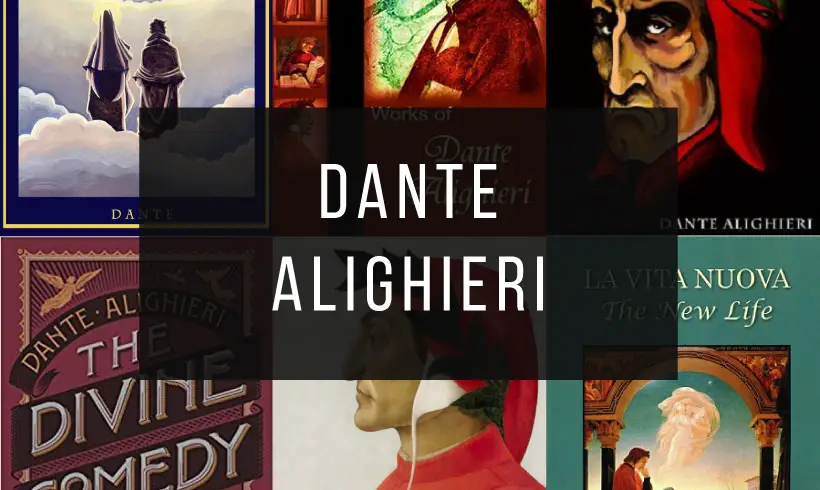Dante Alighieri was born in 1265 into a family with a history of involvement in the complex Florence political scene. Dante’s mother died a few years after his birth, and when Dante was about 12 years old, it was arranged that he would marry Gemma Donati, the daughter of a family friend. Around 1285 the couple married, but Dante was in love with Beatrice Portinari, who would be a great influence on him and whose character would be the backbone of The Divine Comedy.
Dante met Beatrice when he was nine years old, and apparently experienced love at first sight. The couple knew each other for years, but Dante’s love for Beatrice was “polite” and unrequited. Beatrice died unexpectedly in 1290, and five years later Dante published La Vita Nuova (The New Life), which details his tragic love for her.
After Beatrice’s death, Dante began to immerse himself in the study of philosophy and the machinations of the Florentine political scene, holding several important public offices. In 1302, he fell into disgrace and was banished for life by the leaders of the Black Guelphs, the political faction in power at the time.
In exile, Dante traveled and wrote, conceiving The Divine Comedy, and retired from all political activity. In 1304 he seems to have gone to Bologna, where he began his Latin treatise “De Vulgari Eloquentia” (“On the Eloquence in the Vernacular”), in which he urged the enrichment of courtly Italian, used for amatory writing, with aspects of all spoken dialects in order to establish Italian as a serious literary language. The language created would be a way of trying to unify the divided Italian territories. The work remained unfinished, but was nonetheless influential.
In March 1306, the Florentine exiles were expelled from Bologna, and in August, Dante ended up in Padua, but from this point on, his whereabouts were unknown for some years.
In 1308, Henry of Luxembourg was elected emperor as Henry VII. Full of optimism about the changes that this election could bring to Italy, Dante wrote “De Monarchia”, in which he states that the authority of the emperor does not depend on the Pope, but descends upon him directly from God. However, the popularity of Henry VII quickly faded, and his enemies had gathered forces, threatening his ascent to the throne.
These enemies, in Dante’s view, were members of the Florentine government, so Dante wrote a diatribe against them and was quickly included on a list of those permanently banned from entering the city. At this time, he began writing his most famous work, The Divine Comedy.
In the spring of 1312, Dante seems to have gone with the other exiles to meet the new emperor in Pisa, but again, his exact whereabouts during this period is uncertain. By 1314, Dante had completed the Inferno, the segment of The Divine Comedy that takes place in hell, and in 1317 he settled in Ravenna and there completed The Divine Comedy, shortly before his death in 1321.
1) Paradise
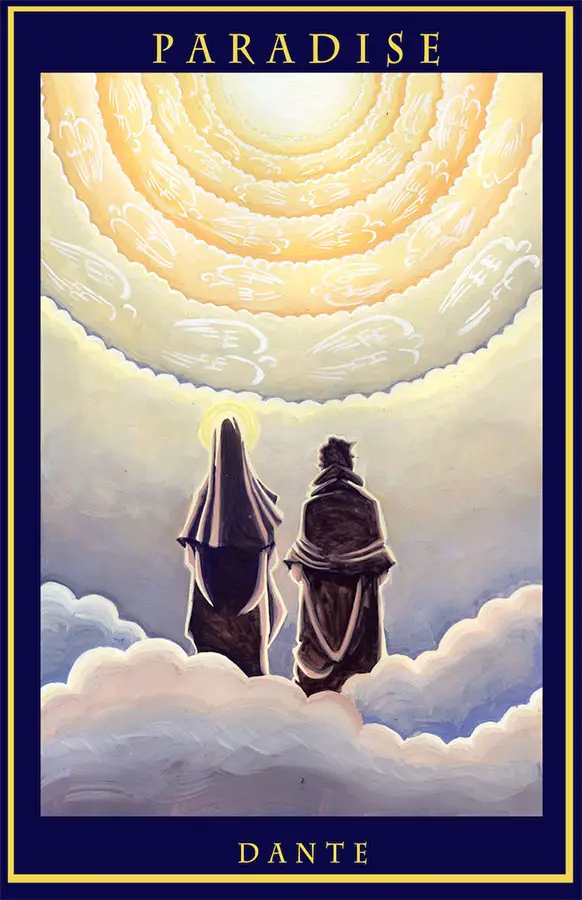
Paradise, also known as Paradiso, is the third and last part of Dante's Divine Comedy, after Inferno and Purgatorio. This poem was written in the early 14th century and narrates Dante's journey through Heaven. Our protagonist is guided by Beatrice through the nine celestial spheres of Heaven, to the Empyrean, which is the abode of God, allegorically representing the ascent of the soul to God.
Dante's journey through Paradise lasts approximately twenty-four hours and begins at the top of Mount Purgatory, called the Earthly Paradise. Finally, Dante comes face to face with God, who appears as three equally large circles representing the Father, the Son and the Holy Spirit.
Dante's Paradise is influenced by the medieval view of cosmology, drawing on Christian theology (in fact, Beatrice is said to allegorically represent theology), astronomy and classical philosophy.
2) Stories From the Italian Poets
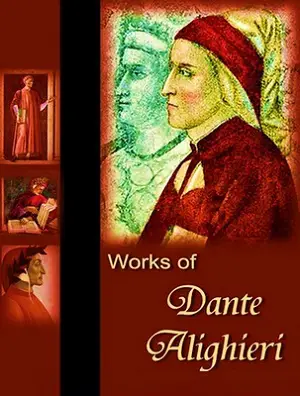
Stories From the Italian Poets is a work that includes stories of five poets noted for their narrative, wit and creativity, these are Dante, Pulci, Boiardo, Ariosto and Tasso. It also offers biographical sketches of each of them and critical notes on their life and work.
In the case of Dante, it presents us with a prose summary of the poet's work, to give us a complete idea of his poetry without having to resort to his metrical form. And this is achieved without making any changes or additions to the work.
It is well known that Dante was a writer of great wisdom and creativity, which is why he created such a renowned masterpiece as the Divine Comedy. This book is intended for those readers who wish to delve into Italian poetry and, more specifically, to get to know the beautiful metaphors, detailed descriptions and beauty of Dante's writing.
3) The Banquet
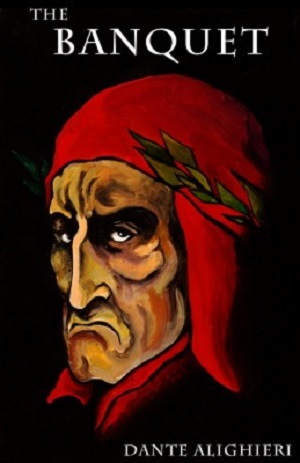
The Banquet is a work written approximately between 1304 and 1307. This unfinished work by Dante consists of four trattati, or «books»: a prefatory one, plus three books that each include a canzone (long lyric poem) and an allegorical prose interpretation or commentary on the poem that veers in multiple thematic directions.
The Banquet is an important stage of development for Dante, very different from the visionary world of the «Vita Nova». Dante himself tells us that the prose of The Banquet is «temperate and virile», in contrast to the «fervid and passionate» prose of the Vita Nova; and that while the approach to this in the work of his youth was «like dreaming», «The Banquet» approaches it subjects soberly and wide awake, often modeling its style on Scholastic authors.
4) The Divine Comedy
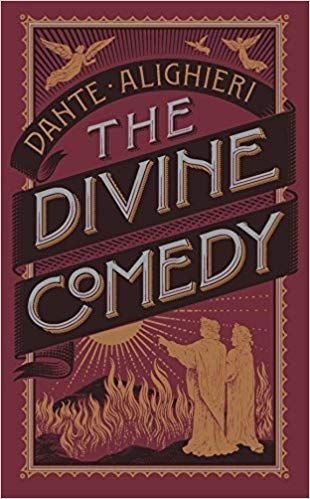
The Divine Comedy is a long Italian narrative poem begun in 1308 and completed in 1320, a year before Dante's death in 1321.
It is considered the crowning work of Italian literature and one of the greatest works of world literature. The poem's imaginative vision of the afterlife is representative of the medieval worldview as it had developed in the Western Church in the 14th century.
It contributed to establishing the Tuscan language, in which it is written (also in most current editions on the Italian market), as the standardized Italian language. It is divided into three parts: Inferno, Purgatorio and Paradiso.
5) The New Life

The New Life or Vita Nova (Latin title) is a text published in 1294. It is an expression of the medieval genre of courtly love in a prosimetrum style, a combination of prose and verse.
Referred to by Dante as his libello or «little book», The New Life is the first of two collections of verse written by Dante during his lifetime. The work is a prosimetrum, a piece containing both verse and prose, along the lines of Boethius' Consolation of Philosophy.
Dante used each prosimetrum as a means of combining poems written over periods of about ten years: «The New Life» contains his works from before 1283 to about 1293. The collection and its style fit into the movement called Dolce Stil Novo.


